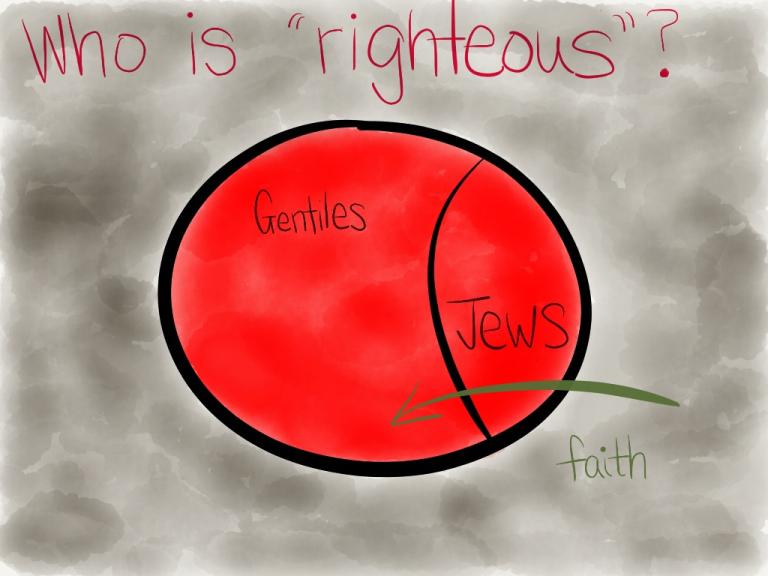How should justification influence our ministry in China?
 If we are concerned with sharing the gospel, we cannot ignore something called the “New Perspective on Paul” (NPP). For those unfamiliar with these names, I suggest that discussion about the NPP represents one of the most important and heated theological debates of the past 30 years.
If we are concerned with sharing the gospel, we cannot ignore something called the “New Perspective on Paul” (NPP). For those unfamiliar with these names, I suggest that discussion about the NPP represents one of the most important and heated theological debates of the past 30 years.
The NPP challenges the traditional way of understanding justification. However, “challenge” does not necessarily mean “contradict.” In writing Saving God’s Face, I found the entire debate incredibly relevant for ministry in China (not to mention other places).
In the following posts, I’ll offer a series of graphs that illustrate some of what the debate is about. More importantly, I’ll give reasons why these two “perspectives” so often talk past one another. In these first few posts, I’ll try to capture the key features that distinguish the NPP and the traditional view. In coming posts, I’ll show how Chinese culture helps bridge the divide and suggest implications for a “Chinese perspective on justification.”
To be sure, the NPP has become a catchphrase to represent a wide range of ideas––some outside the bounds of orthodoxy and a variety that have a more evangelical flavor. Although the topic involves a number of complex details, the summaries I offer are at least representative of core issues.
This whole debate can make one’s head spin, so I’ll try to keep the posts a little shorter to allow time to mentally digest it.
What is the “Old Perspective” on Paul?
The traditional view of Paul (the Old Perspective on Paul, OPP) says that Paul’s discussion of justification centrally concerns how one is saved. The problem Paul confronts is Jewish legalism. His Jewish opponents trusted in their good works such that they might be saved by obeying God’s law. Accordingly, Paul argues that all are sinners and salvation comes only by grace through faith. To be “justified” means being “declared righteous” in the eyes of God. Since no one can perfectly keep God’s law, the only way for someone to be righteous is by God “imputing” or “crediting” Christ’s righteousness to our account.
In the graph above, we see two types of people. Those who are inside the circle represent all who are reckoned as righteous. Even though all have sinned and are unrighteous, anyone from any nation, whether Jew or Gentile. Anyone can be saved if (s)he has faith in Christ. Faith, not works, separates those who are saved (“inside” the circle) and those on the “outside.”
The OPP gives particular emphasis to the individual. Although people understand that Paul is specifically thinking about the Mosaic Law, God’s “law” is generally seen as the various commands that God has given throughout history. Many would argue that the OPP, in practice, stresses systematic theology more than biblical theology. Thus, some would charge the OPP as saying a variety of true things yet ignoring the Bible’s own language and context.
What do Chinese Evangelical believe?
This traditional understanding of justification is the standard view among evangelical Chinese churches. I find that Chinese pastors get nervous when they hear things about the so-called “new perspective on Paul.” However, whenever I ask them what exactly the NPP asserts, they don’t really know. Most often, they have simply “heard” that they should watch out for it.
I don’t want us to form theological conclusions based merely on rumor or fear. So, in the next post, I’ll introduce the NPP. The whole time, we should keep the Chinese context in mind.
Photo Credit: “Dawn: Luther at Erfurt” which depicts Martin Luther discovering the doctrine of Justification by Faith. (via CC 2.0/Wikipedia)













